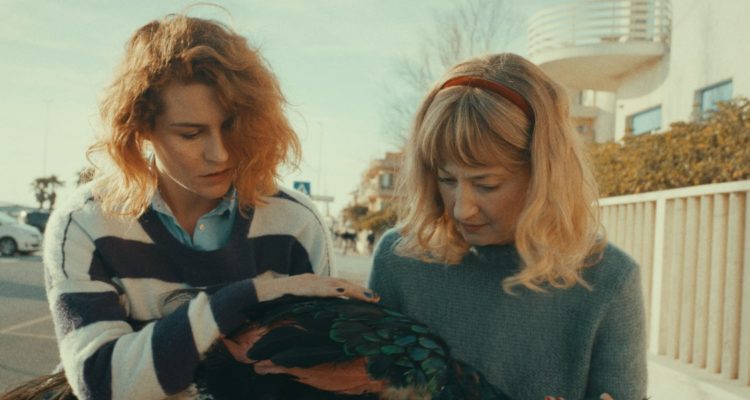“The Peacock’s Paradise” is one of the worst types of films to watch and review. Ineffectual in its style, but inoffensive in its content and execution, Laura Bispuri’s most recent directorial effort fails to move beyond the rudimentary elements that comprise the average movie.
READ MORE: Venice Film Festival 2021 Preview: 12 Must-See Films To Watch
The narrative centers on an estranged family gathering to celebrate the birthday of Nena (Dominique Sanda), its matriarch. As one can likely surmise from comparable films or personal experience, upon reuniting, secrets rise to the surface, tensions flare, and individuals ruminate on their past, present, and future. Existentialism, fear of death, youth, and love are all thematically touched upon, but the conclusions drawn by the script are less than insightful.
READ MORE: Fall 2021 Movie Preview: 60+ Must-See Films
“The Peacock’s Paradise” is by no means a “bad movie,” if one were to gauge the film on a technical level; Vladan Radovic’s camerawork captures an intimate, documentary-esque ambiance, the entire cast delivers commendable performances, and Bispuri’s ability to craft a coherent, naturalistic narrative should not be overlooked. Tonally, the film strolls along at an intentionally glacial pace before shifting into a somewhat brooding atmosphere at the halfway point. But Bispuri’s approach to the material is radically dull.
The unobtrusive style Bispuri brings to “The Peacock’s Paradise” means the film never stretches beyond a base-level flair, both in visual language, character development, and emotional impact. The ideas that the drama spends the majority of its runtime musing over never develop and, certainly, are not approached from a fresh perspective. Perhaps the most glaring flaw with “The Peacock’s Paradise” is Bispuri’s seemingly oblivious use of clichés. It’s a creative decision that deflates the film beyond repair.
Despite being largely unoriginal, Bispuri and screenwriter Silvana Tamma warrant commendation for skirting around the dreaded screaming matches or random violent outbursts that frequently plague family dramas. At the same time, the film is almost too reserved, and as a result its narrative momentum never accelerates. There are no stakes, no emotions, and, accordingly, no investment from the audience.
Viewing “The Peacock’s Paradise” is a grueling cinematic experience. WIth its lack of engaging traits — either intentional or unintentional — surface-level treatment of profound themes, unexceptional visual language, and sluggish pacing, there is no element in the film to capture one’s attention or emotion. Sadly, “The Peacock’s Paradise” embodies the definition of an “okay” movie — and that is, undoubtedly, its greatest offense. [C-]
Follow along with our full coverage from the 2021 Venice Film Festival here.

